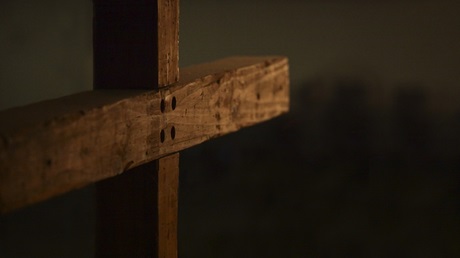An excerpt from ‘The Crucifixion,’ CT’s 2017 Beautiful Orthodoxy Book of the Year.

When affluent white Americans think of heaven, we tend to think of celestial serenity, natural beauty, and family reunions. Black Americans and other disadvantaged groups would be much more likely to think of God’s promise that there will be ultimate justice. For anyone who has suffered great wrong, it is important to know, as the book of Revelation promises so wondrously, that all wrongs will be righted (Rev. 21:3–4).
To be sure, most people, of whatever color, tend to be intensely interested in justice when it is for themselves. It is the notion of justice for all that is missing from much of our public discourse. People turn out for justice when the issue is something that affects them directly, but it is difficult to generate public enthusiasm to support justice for somebody else, or some group other than one’s own. The civil rights movement was an authentic miracle of God’s justice because it managed to mobilize significant numbers of people from various constituencies. Unfortunately, this is rare. Apathy and lack of caring for others have something to do with this; determination not to lose one’s privileges may be a larger motivator. There is a theological dimension here. Justice for everyone is an alarming thought because it raises the possibility that it might come upon oneself after all. As the author of Ephesians puts it, “by nature” we are all “children of wrath, like the rest of mankind” (Eph. 2:3, ESV).
It makes many people queasy nowadays to talk about the wrath of God, but there can be no turning away from this prominent biblical theme. Oppressed peoples from around the world have been empowered by the scriptural picture of a God who is angered by injustice …
